Color Features and Shades
It is almost impossible to find the wenge color in its natural form, because natural African wenge wood (Millettia laurentii) is rare and very valuable. It is mined in small quantities, and therefore is extremely expensive.
Modern manufacturers either imitate wenge using films, stains, waxes. Or they make furniture with wenge veneer, but products with such facades will cost more than analogues of other varieties.
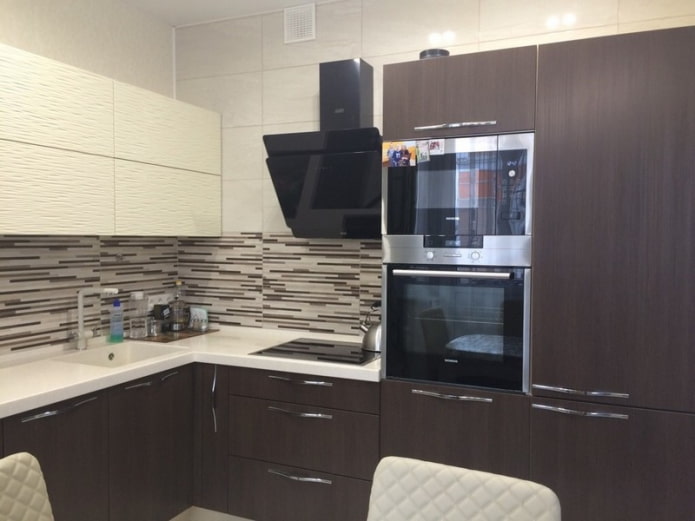
Since we most often see wenge-colored furniture in film, many believe that wenge is exclusively dark brown with frequent light veins. However, natural wood is more multifaceted: depending on the age of the tree and the part from which the cut was made, the shade varies from light brown to chocolate (almost black). Sometimes it goes to a purple or burgundy undertone.
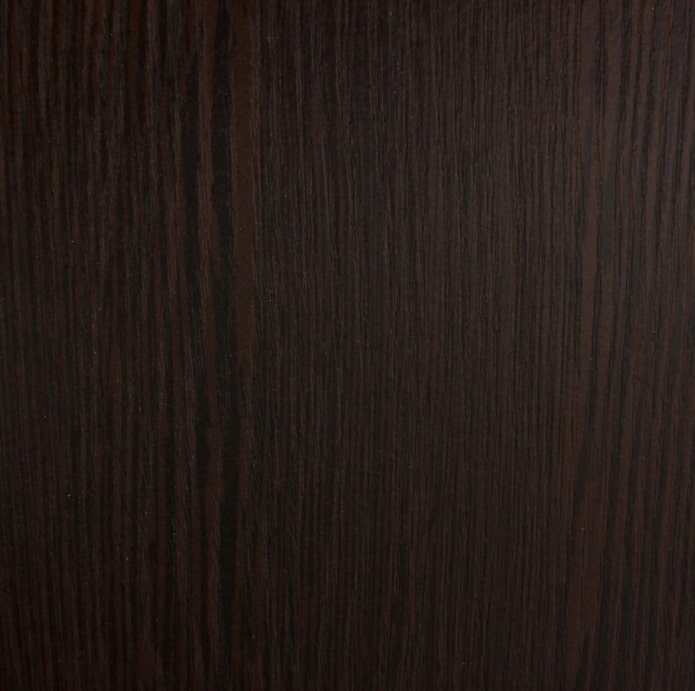
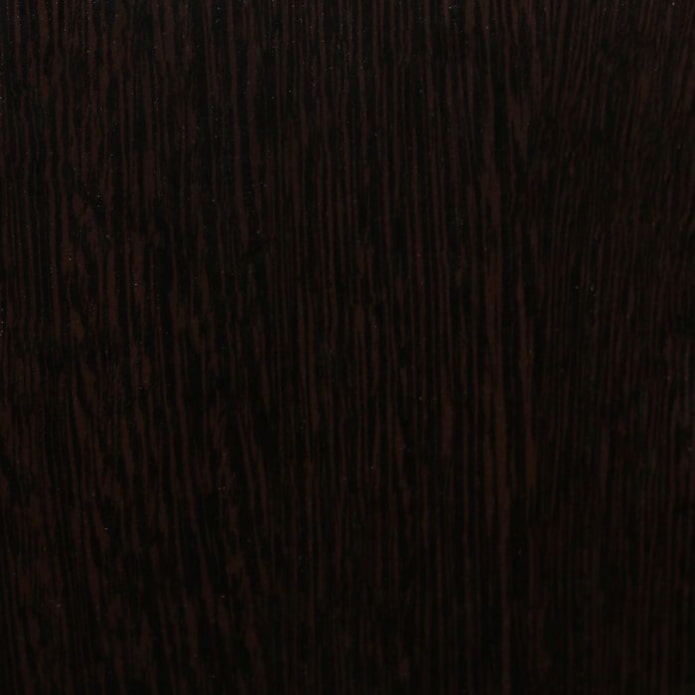
The undertones even have their own individual names:
- melinge — cold dark brown;
- tsavo — warm medium saturation;
- aruba — dark with burgundy notes.
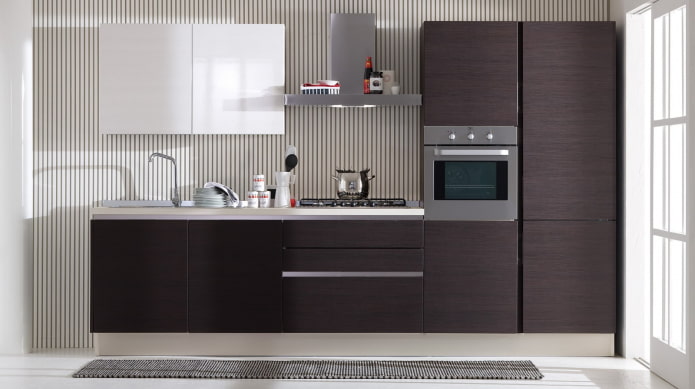
What colors are best to combine with?
A wenge-colored kitchen is rarely monochromatic. Most often, dark wood is combined with other shades of wood:
- kitchen wenge and bleached oak (or milky) – a standard method, usually used in the form of “light top, dark bottom”;
- combining lower facades for the kitchen wenge with imitation walnut on the upper ones, you should pay close attention to the shades: both trees are warm or cold, it is best to combine them in one temperature;
- combined sets with shamani or sonoma oak provide a new reading of African wood.
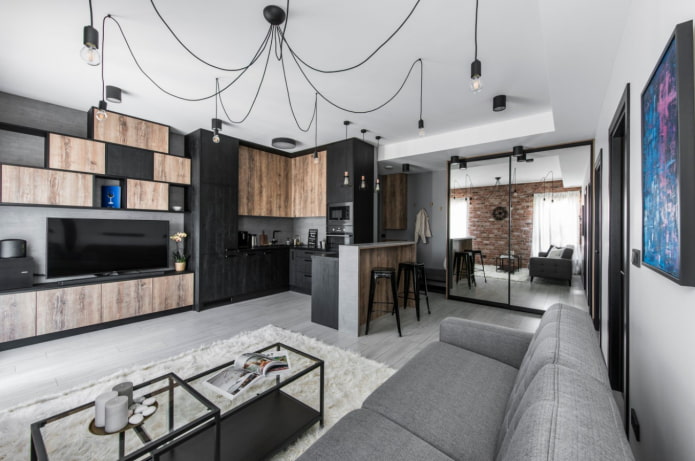
The photo shows a combination of wood of medium and strong saturation
Second by frequency of use, the option is to combine dark wood with pure white. A kitchen set against white walls will never look too rough.
Tip! If you add glass and metal details to glossy white, you will get a stylish high-tech interior.
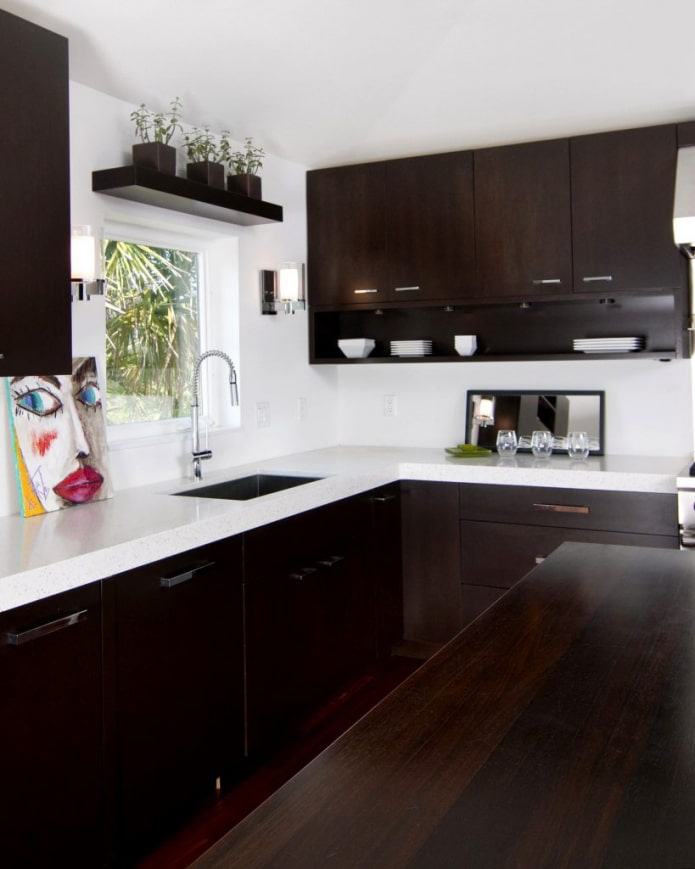
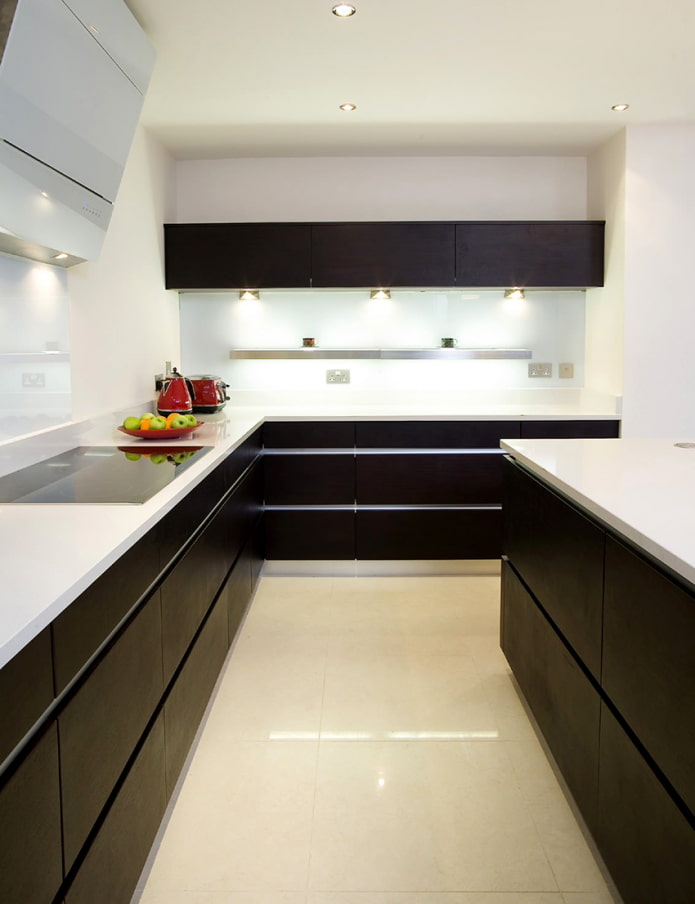
Color duets of wenge with blue, green, orange, purple are becoming increasingly popular: the more complex the tone, the more expensive the wenge-colored kitchen will look in the interior.
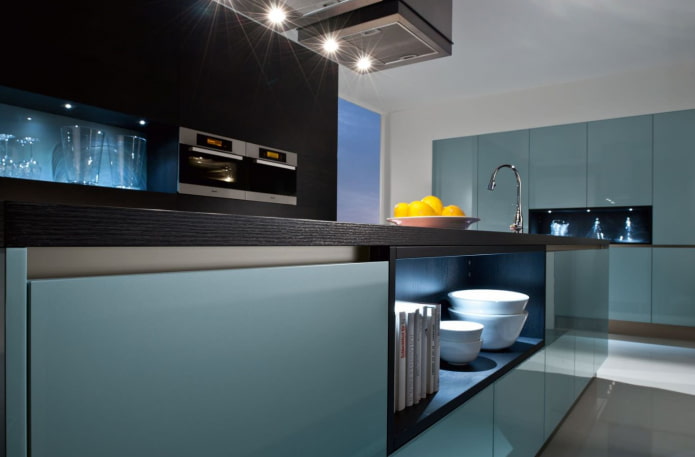
The classic kitchen design – a combination of wenge color with vanilla – has already outlived its usefulness. Therefore, it is better to leave the usual combination with beige in the past, choosing any other light shade for the design.
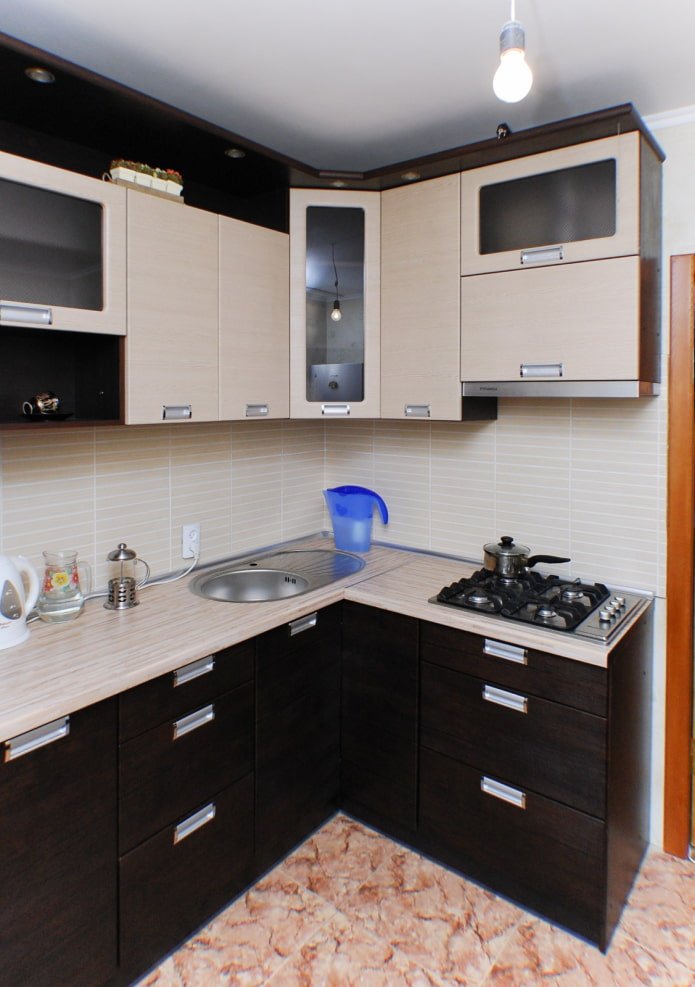
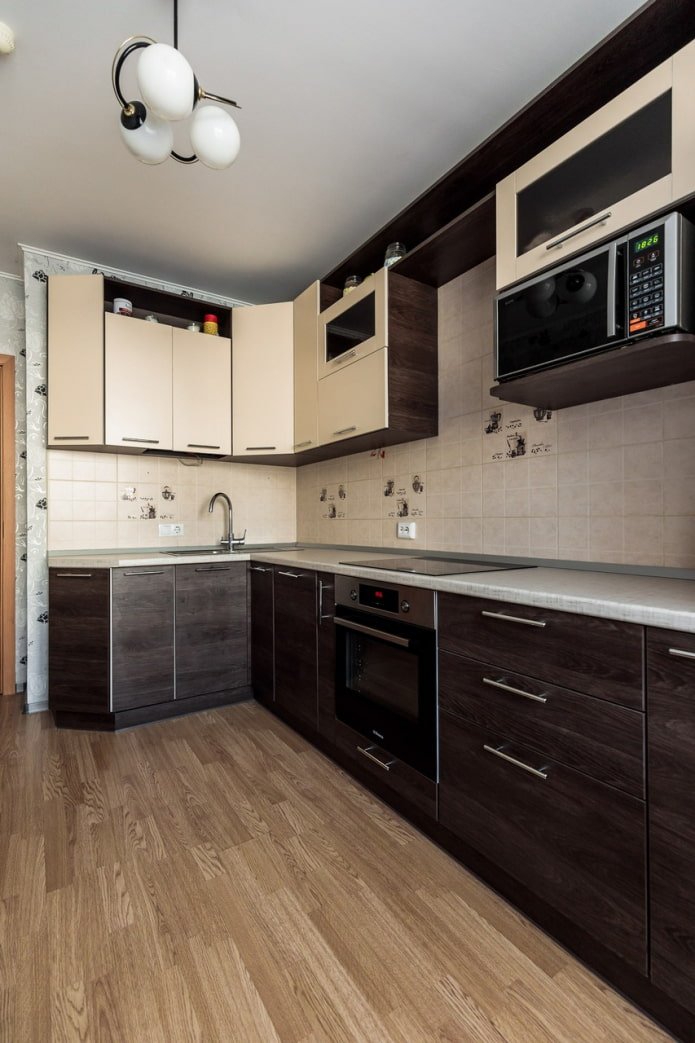
Recommendations for choosing a finish
Wenge-colored kitchens are active in themselves: so that dark cabinets do not look too bulky, they are placed on a light base.
It is ideal if the room has a white ceiling, white (beige, grey) walls, light (oak, alder, walnut) floor.
Advice! Light walls get dirty easily, so choose practical finishing materials: washable paint, tiles, panels.
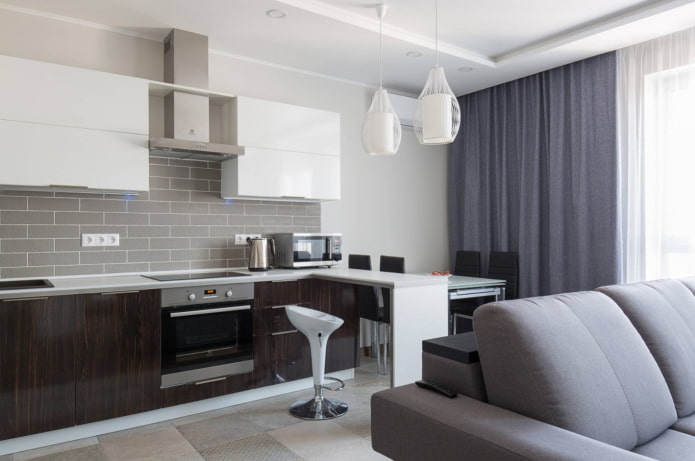
The photo shows a light finish of the kitchen-living room
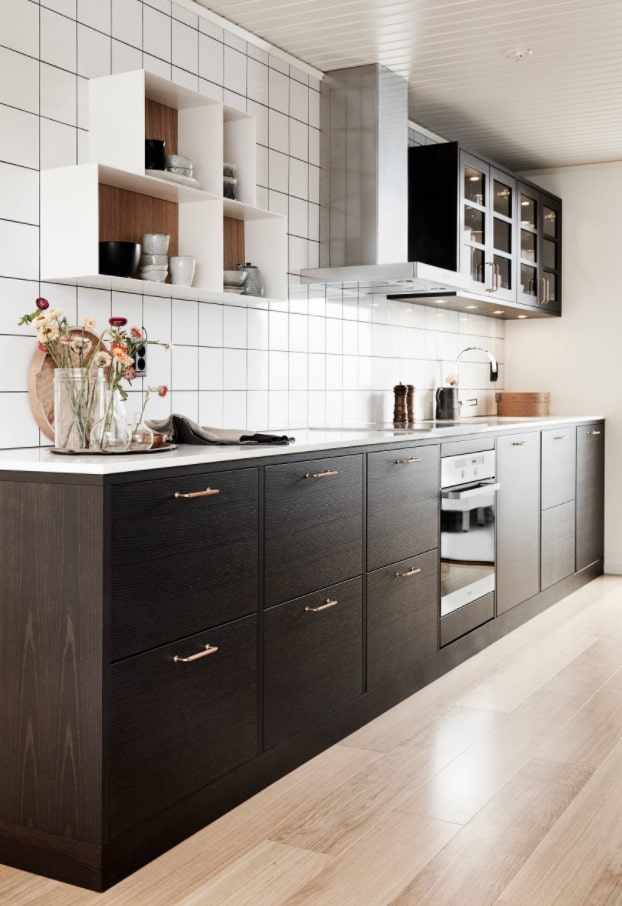
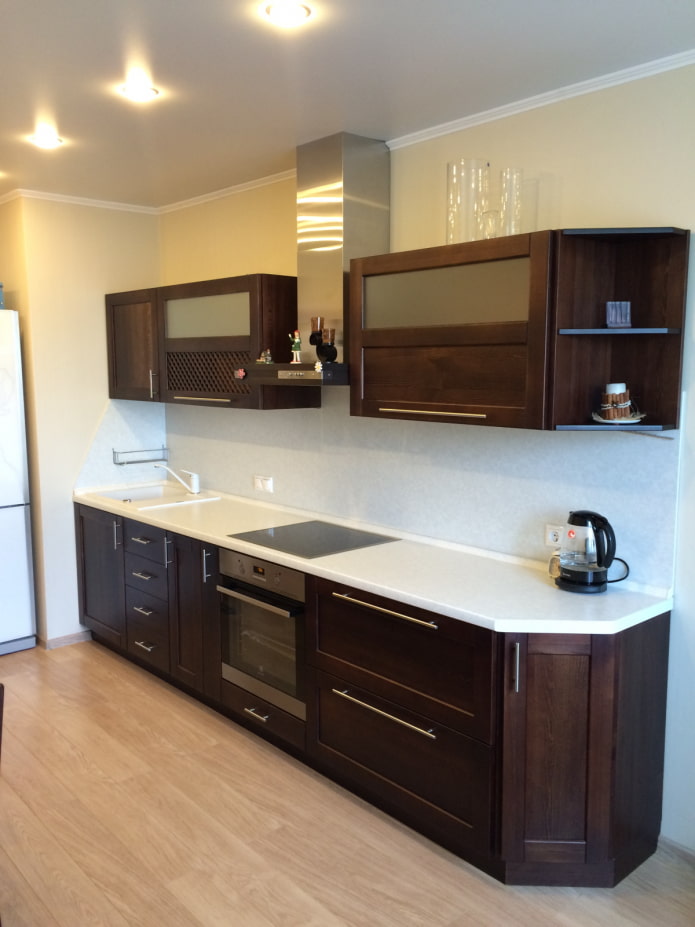
If desired, you can make the interior more active by making the walls colored – but this option is not suitable for small rooms.
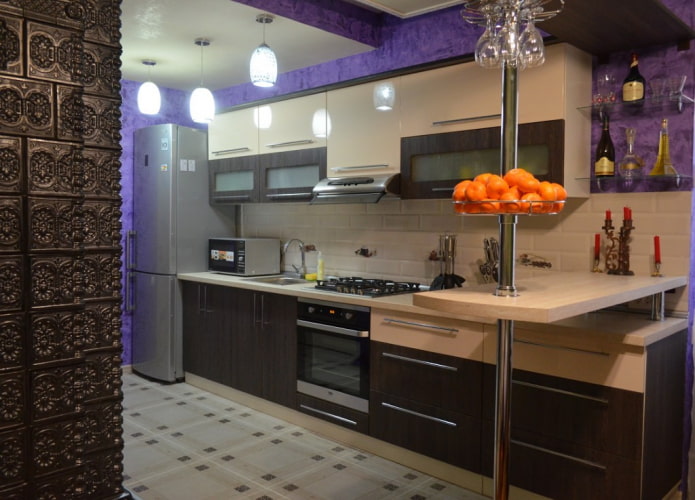
What kind of countertop should I choose?
Since wenge kitchen fronts already have an overly saturated shade, it is better to choose a light countertop: it will add airiness and lightness to the overall look.
A wenge kitchen looks good with a beige panel, white, and marble variations. A modern option is terrazzo.
Advice! Give up the texture of wood in favor of a single-color gloss or stone, wenge goes well with them.
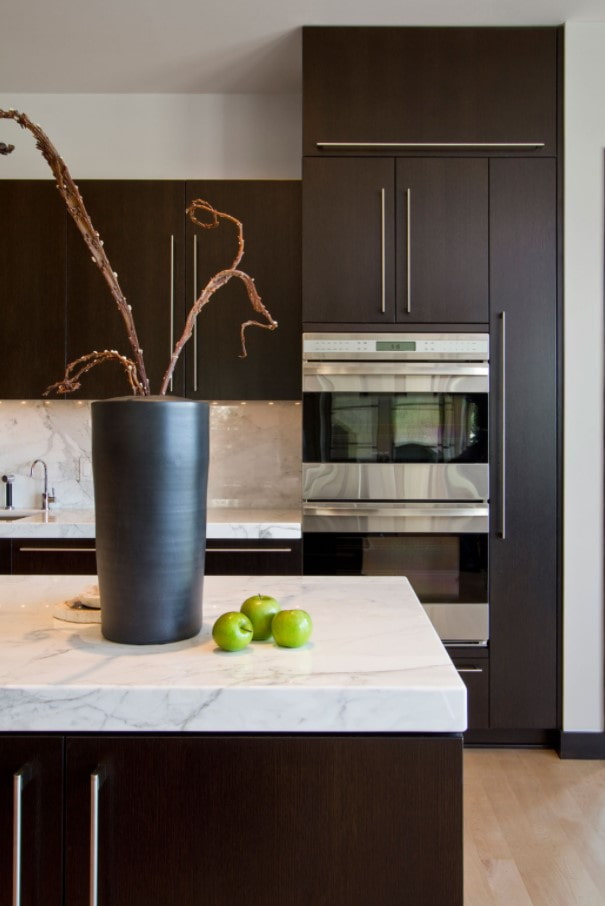
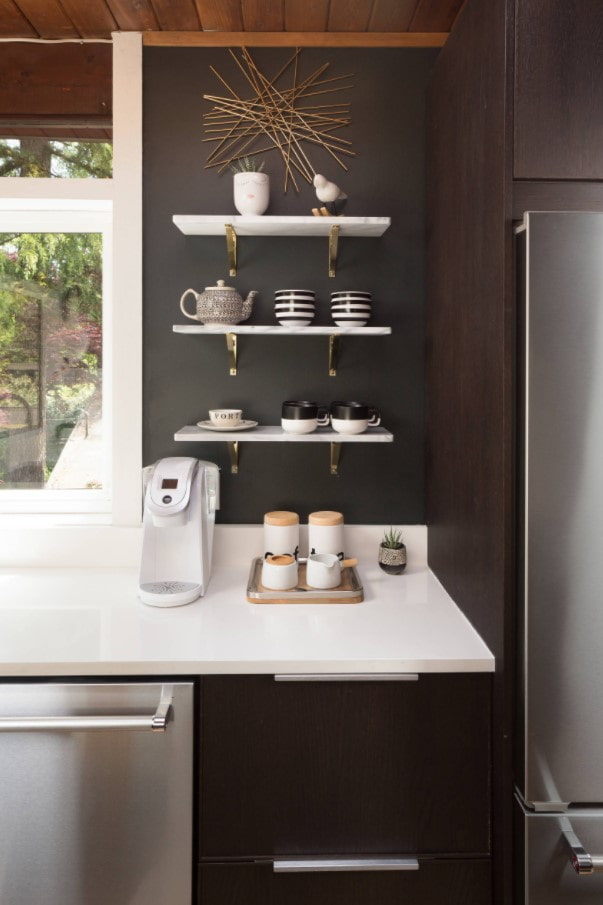
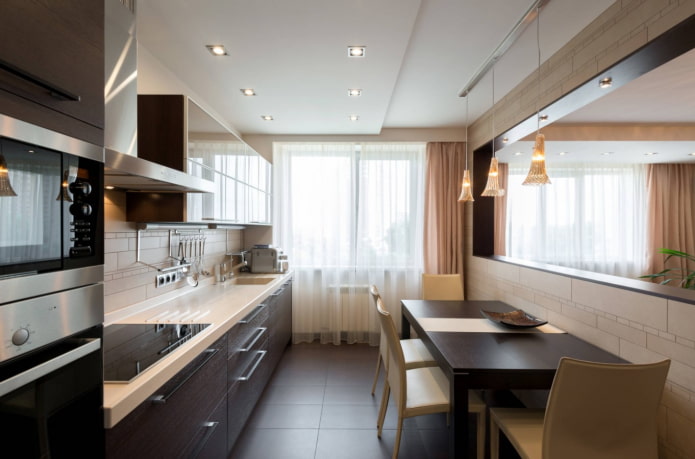
The photo shows a light countertop made of artificial stone
Which apron to choose?
A wenge kitchen apron should combine aesthetics and practicality. If you look at real photos of completed projects, you will notice that the panels above the work area almost always tend to be white or cream. On the one hand, this option is a win-win, on the other hand, it is boring and has become boring.
Therefore, if you want something more original, choose a single-color apron made of tempered glass. It is worth adding lighting to this simple design and a luxurious accent in the interior is ready!
Suitable materials: tiles, porcelain stoneware, skinali, PVC panels (everywhere except the area near the stove), natural or artificial stone, MDF panels (can be selected or ordered to match the countertop).
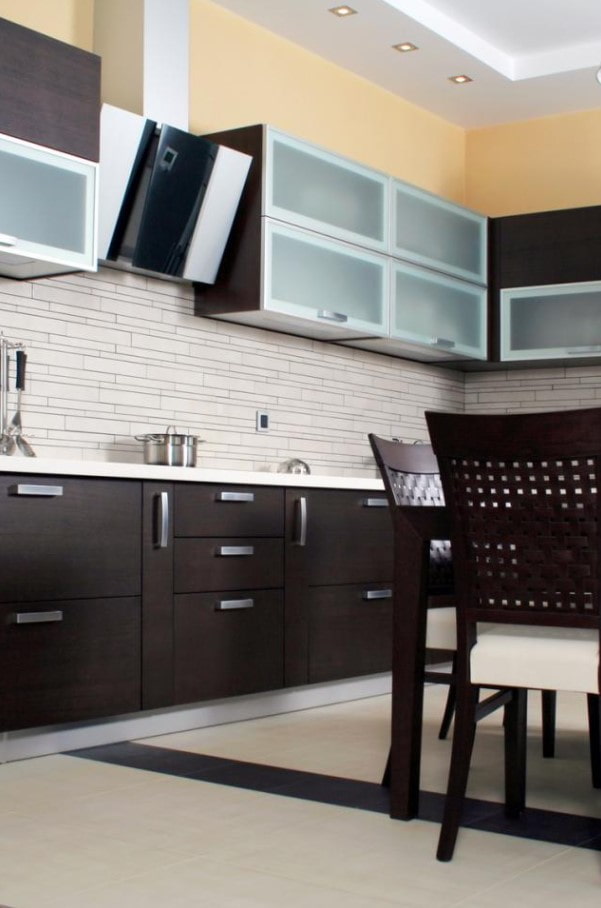
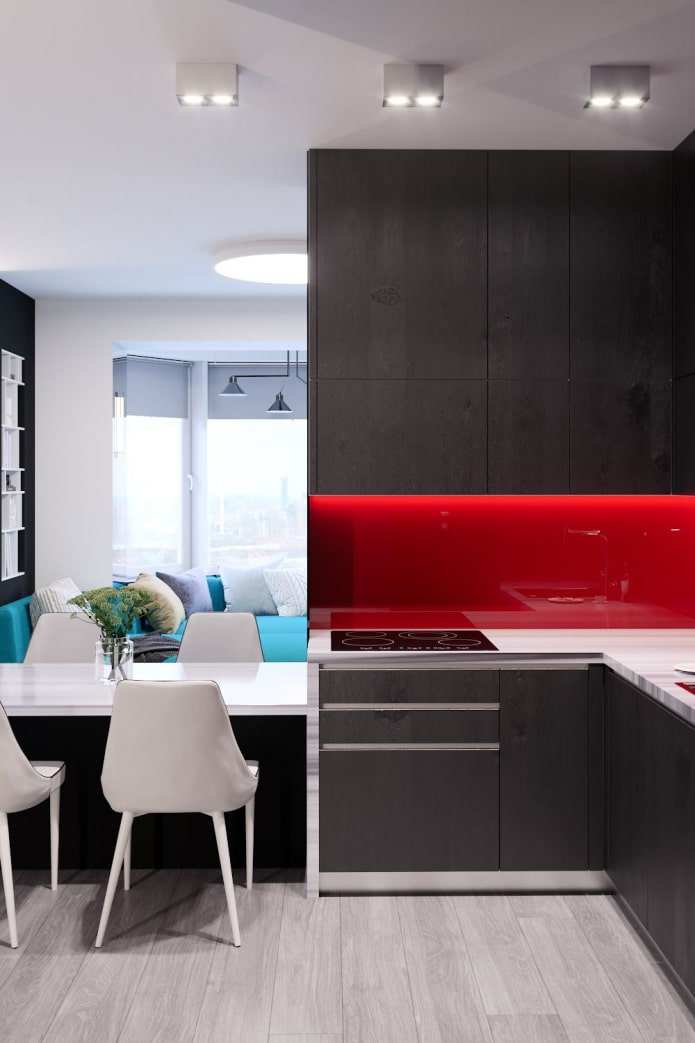
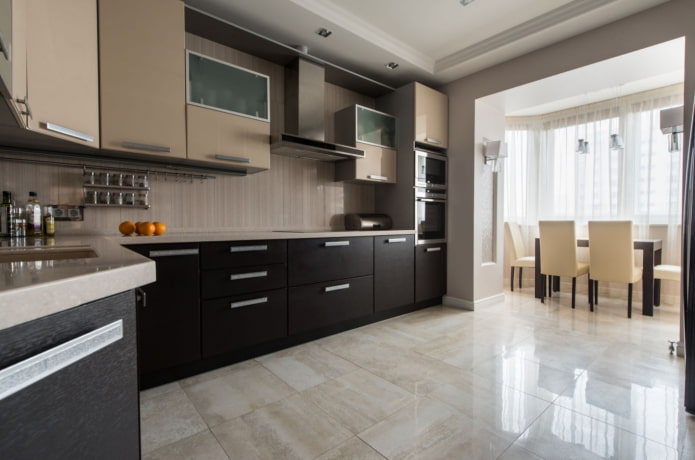
What curtains to choose?
The kitchen interior can exist without curtains – especially since the trends of recent years actively encourage to refuse textiles on windows wherever possible. Open openings are especially good in small spaces – they visually expand the rooms, fill them with air.
Another option for a kitchen without curtains is when the corner set is located under the window. Especially if there is a sink or dining table (bar counter) opposite the doors.
If curtains are still needed in the kitchen, they are chosen not to match the color of wenge, but to match the style of the interior: beige, dusty pink, gray will decorate restrained classic interiors.
Scarlet, fuchsia, blue, purple will add dynamics to modern spaces.
Types of curtains are selected in accordance with the size of the kitchen: in large ones, curtains with tulle from floor to ceiling are acceptable, in tiny ones it is better to opt for compact Roman, roller, cafe.
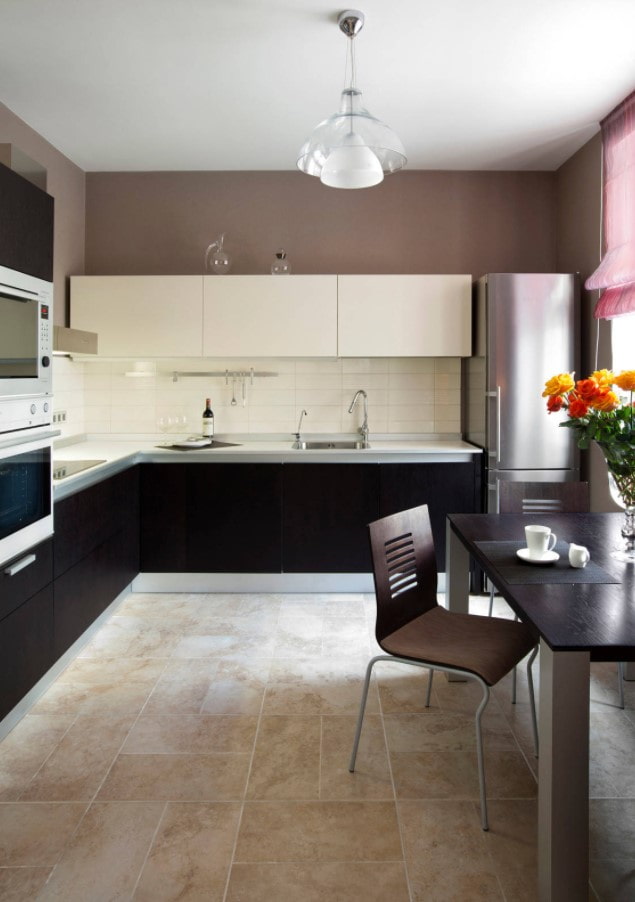
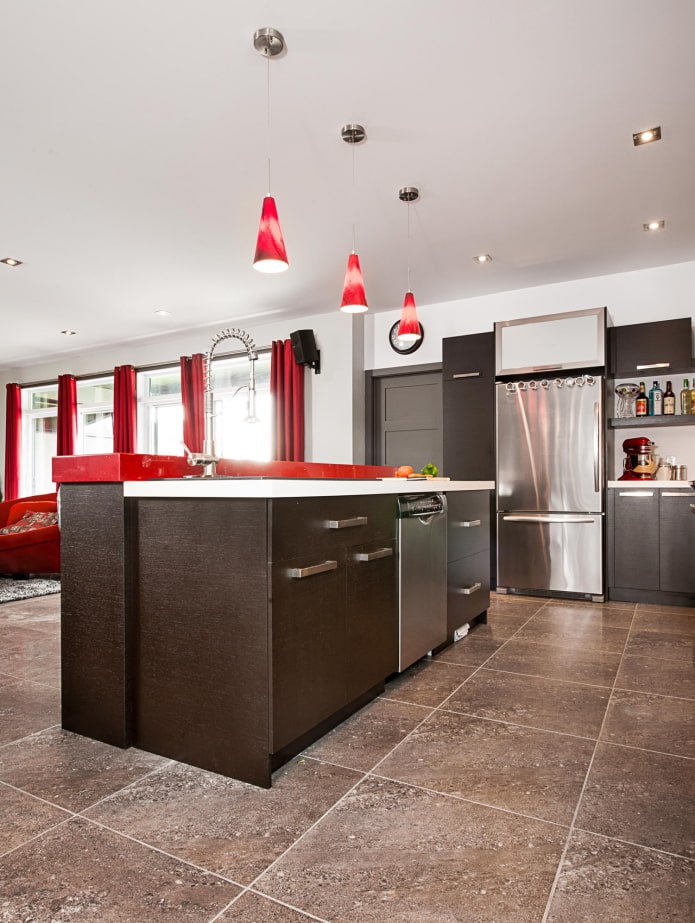
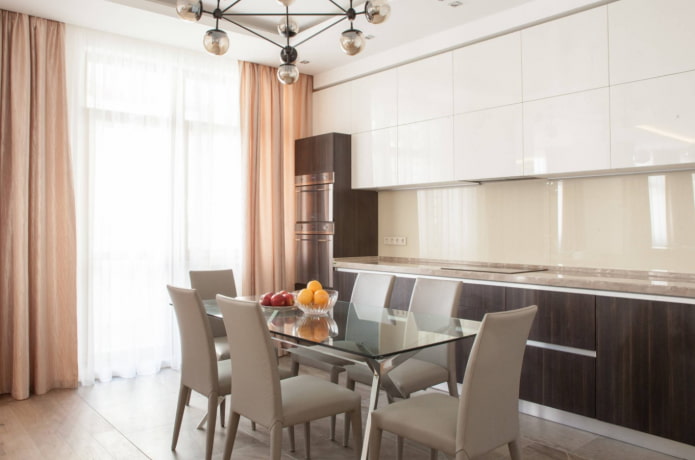
What style can you use?
Initially, the use of wenge in homes was considered an indicator of wealth: of course, because this wood costs even more than mahogany. That is why wood was previously present mainly in palace luxurious styles.
A modern interpretation of dark wood allows it to be incorporated even into such controversial trends as industrial style: due to its proximity to black tone, it goes well with concrete, brick, and warmer, rich wood.
The set will be an excellent background in a kitchen in a minimalist style: a combination with white, gray, and black allows you to achieve a clean, neat appearance.
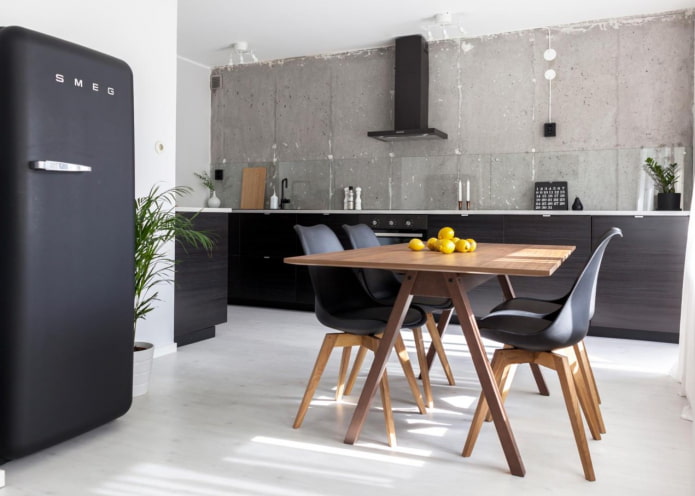
The photo shows a loft style kitchen
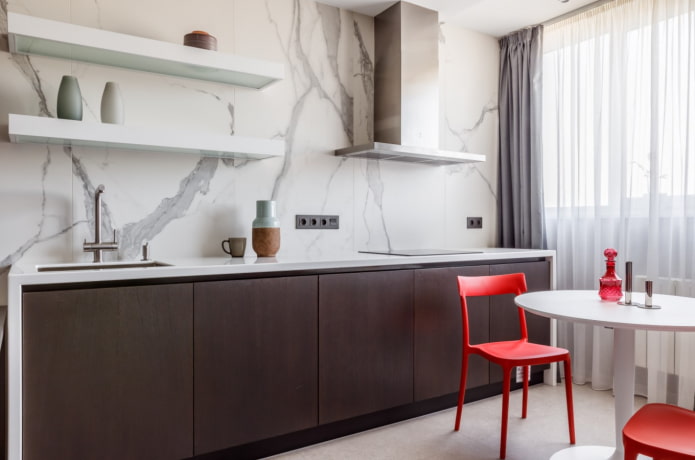
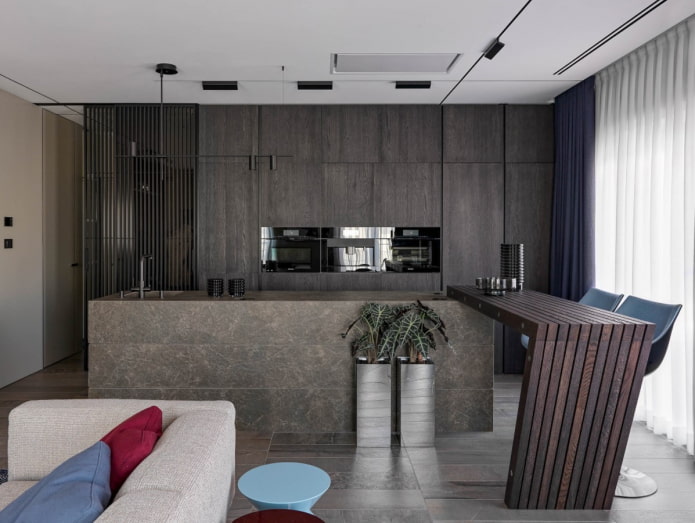
Restrained classical styles can still be called the best direction for using dark wood: doors with frames, milling and even patina look amazing in this shade.
The use of wenge in rustic kitchens (country, Provence) is controversial – after all, the shade is too elegant for them. Provence tends to pastel, painted wood, country – to a simpler shade – oak or walnut.
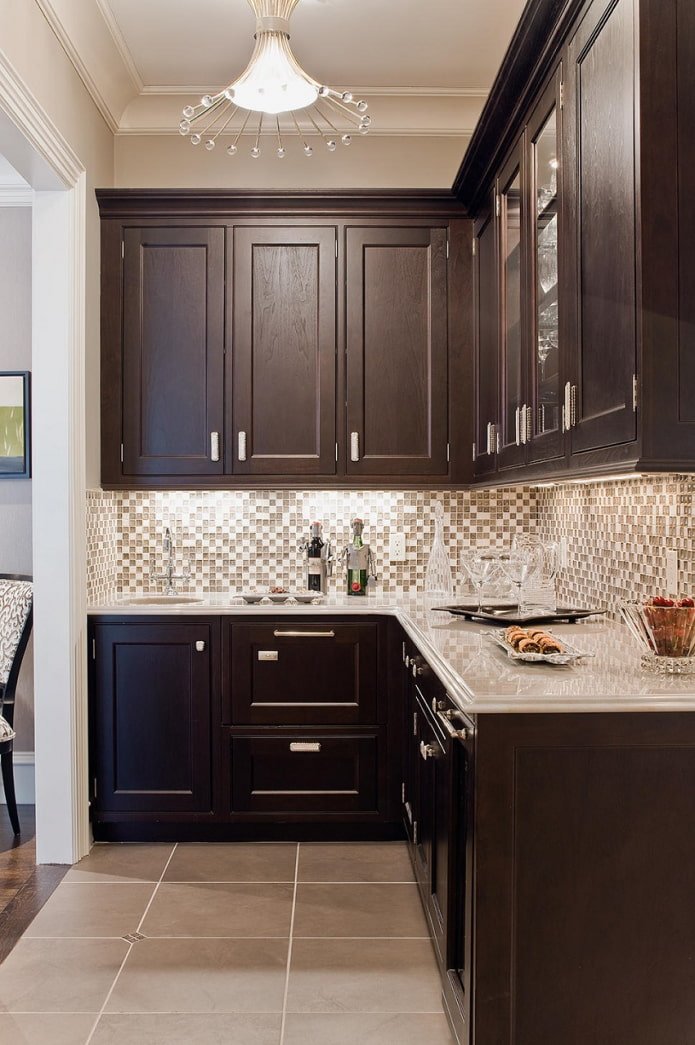
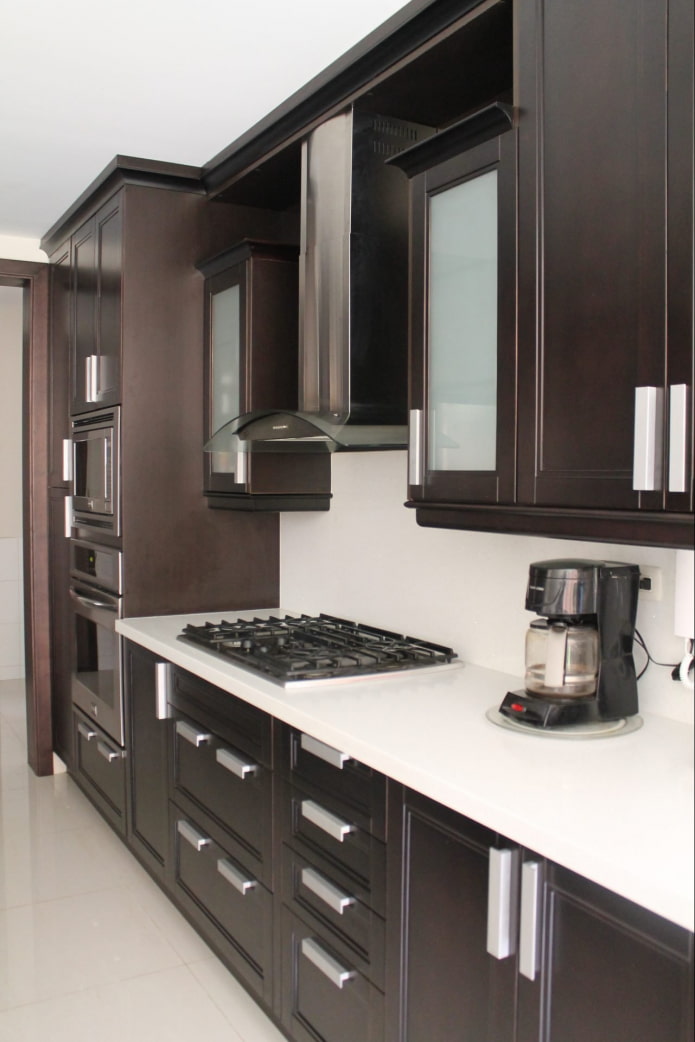
The “second birth” of wenge, which has been observed in recent years, is quite justified. A versatile, beautiful shade of natural wood that looks new in different circumstances. Don’t be afraid to use it for your kitchen – with the right approach, the interior will not go out of fashion for many years to come.
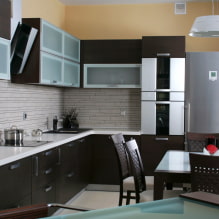
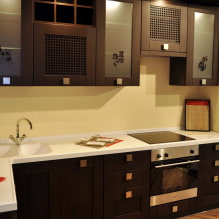
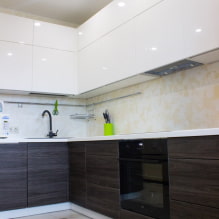
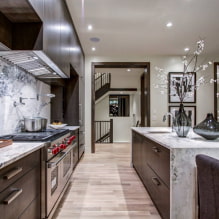
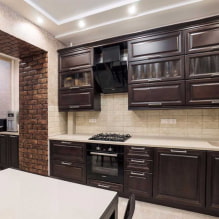
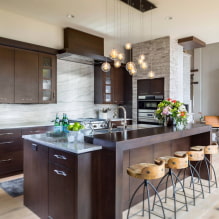
Now reading:
- Living room wall decor: 65 current ideas with photos for inspiration.
- Lining in the interior: more than 60 photos and creative design ideas
- items from Leroy Merlin to create functional zones in the interior
- Laminate for modern interiors: styles, shades, design and photos of solutions.
- Kitchen walls: more than 70 photos of interior solutions and stylish design ideas